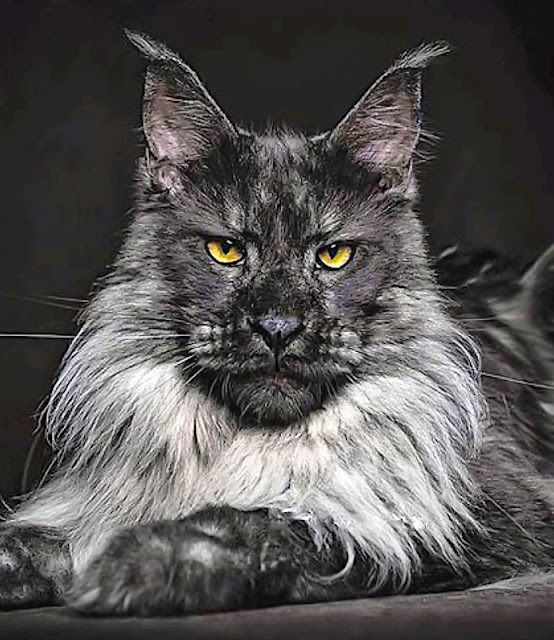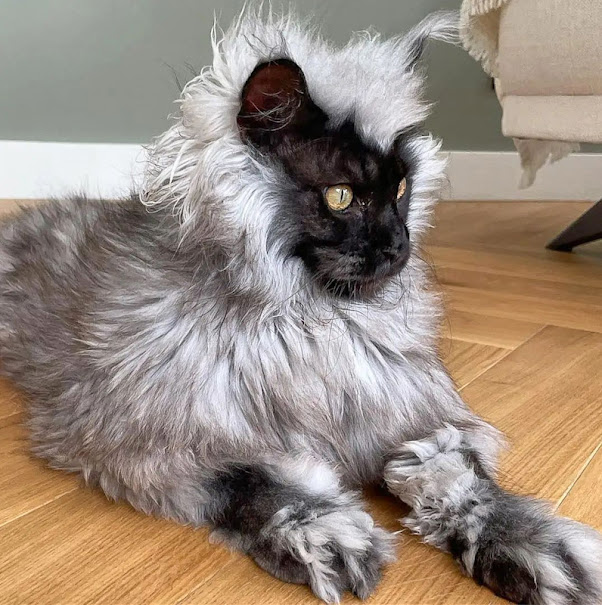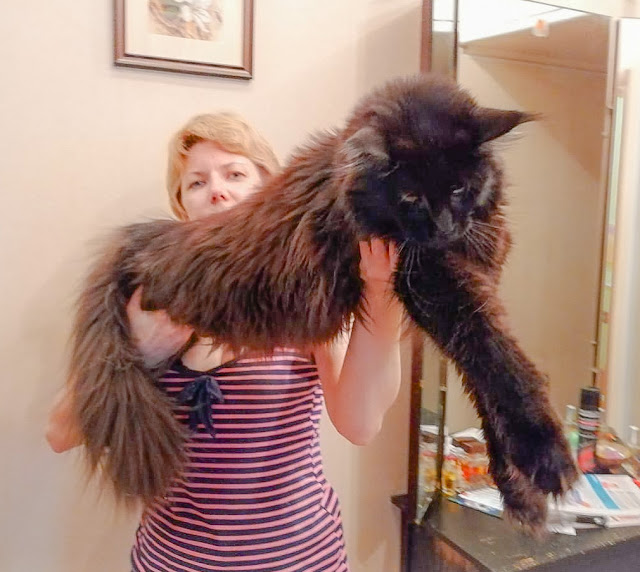Study says that Maine Coons have a high susceptibility for gastrointestinal intussusception
A study dated April 14, 2014 (quite a long time ago) which took place in Germany, concluded that "Maine Coons have a high susceptibility for gastrointestinal intussusception."
 |
| Gastrointestinal intussusception in Maine Coons. Image: study. |
The study: Gastrointestinal intussusception in the Maine Coon: A review of 19 case. By J. VERSCHOOF, C. THIEL, M. HENRICH and M. KRAMER.
They couldn't find any "predisposing factors" which might be behind this susceptibility. They recommended further research. So, what is gastrointestinal intussusception? It describes a condition when the bowel i.e. the intestines, telescopes in on itself. The outside wall of one section of the intestines become adjacent to and facing the inside wall of the intestines nearby. The most common sign of intussusception in cats is vomiting or diarrhoea which lasts for more than two days. And it can be accompanied by blood in the stools or vomit. There is a loss of appetite and signs of depression. Prompt medical attention is required. It is a serious disease.
In this study 25 cats were assessed and intussusception was diagnosed. Of these 25 cats, 19 i.e. 76% were Maine Coons. That's why the scientists decided that Maine Coons are predisposed to contracting this disease. Also, 74% of the 19 Maine Coons that had the disease were young. As mentioned, they could find no underlying disease. They state that intussusception "remained idiopathic in young Maine Coons". That means without a known reason. The median age of the Maine Coons affected was one year of age with a range of three months to 5-years-of-age.
RELATED: Maine Coon kitten, Red, born with convergent strabismus. Serious or cute?
The jejunum was the area most affected. The jejunum is one of three sections that make up this small intestine. It is the middle of three parts between the duodenum and the ileum. The cats required surgery and the "long-term survival rate was 74% i.e. 14/19 cats with no signs of recurrence on a follow-up. Three cats were euthanised during surgery and two cats were euthanised because of post-surgery complications.
I would love Maine Coon owners to comment on this article. I would really like to know whether there are some Maine Coon owners out there who see or have seen symptoms in their Maine Coon which might indicate that they are suffering from this disease or a veterinarian has assessed their cat as having the disease.










I lost my 7 month old mc this month to intuhcuhceptions which the vets said was idiopathic. He survived the op but had post operative complications of peritonitis. I wonder if food allergies has anything to do with this predilection, we have his twin brother abd are concerned that this is familial and he too will contract the disease.
ReplyDeleteMy gut feeling, and I have to rely on a gut feeling as the experts are unsure what caused this in the study, is that it is inherited in which case the twin brother may develop the same disease. If a cat breed is predisposed to a disease, it is likely to an inherited condition. I'd watch and wait and see what happens. As for the food allergies being a cause, they might but I don't believe that you'll find a vet or scientist who can answer your question sadly. I think that this is more to do with an inherited disease due to selective breeding. Good luck and thanks for sharing.
DeleteCould it be that owners of a young MC are more likely to pay for needed surgery than owners of older & other breeds of cats?
ReplyDeletePossible but I'd doubt that you'd find a study on this or any statistics which support this. It is possible as people who've just adopted a MC kitten might take out health insurance and then years later when the premiums have gone up they cancel it.
Delete